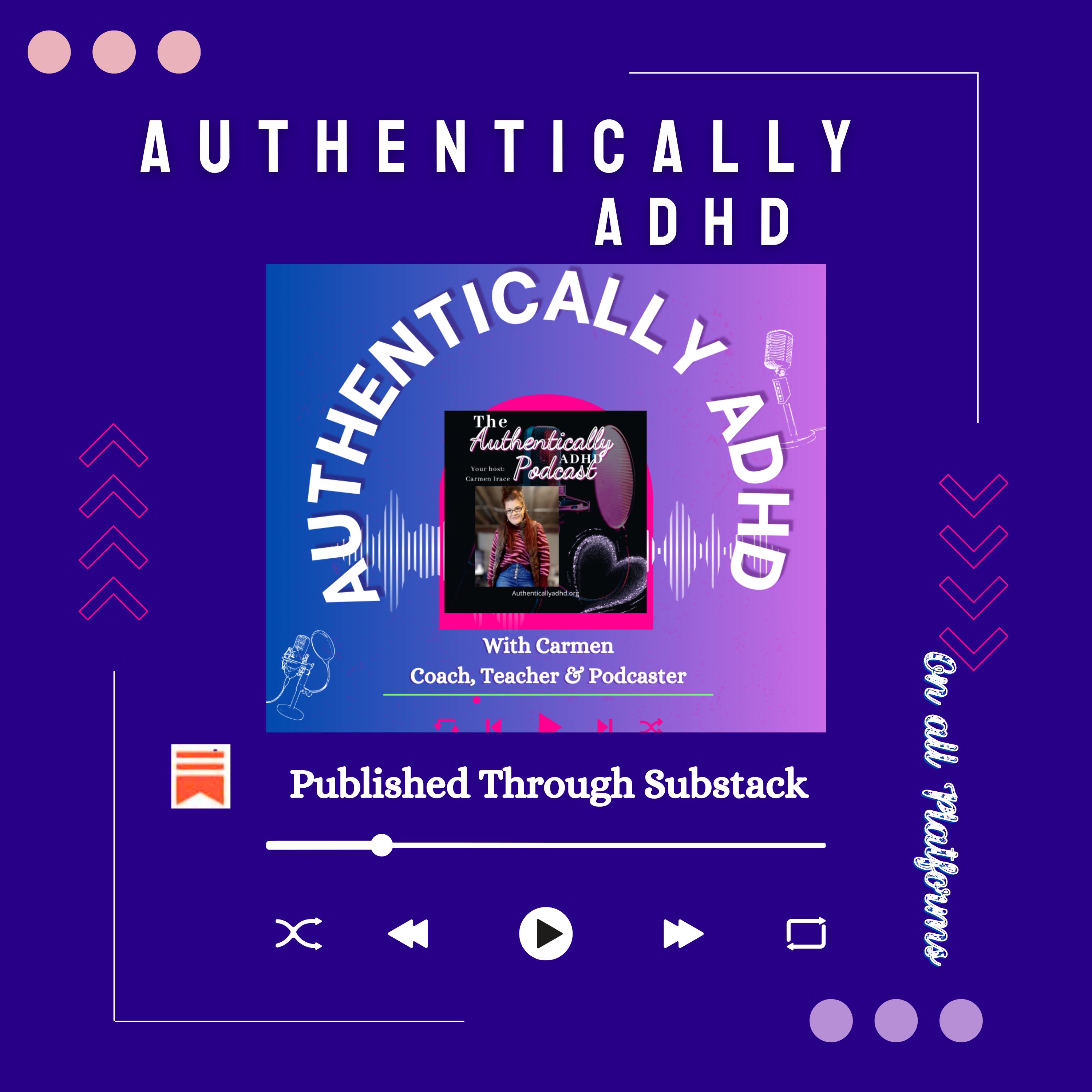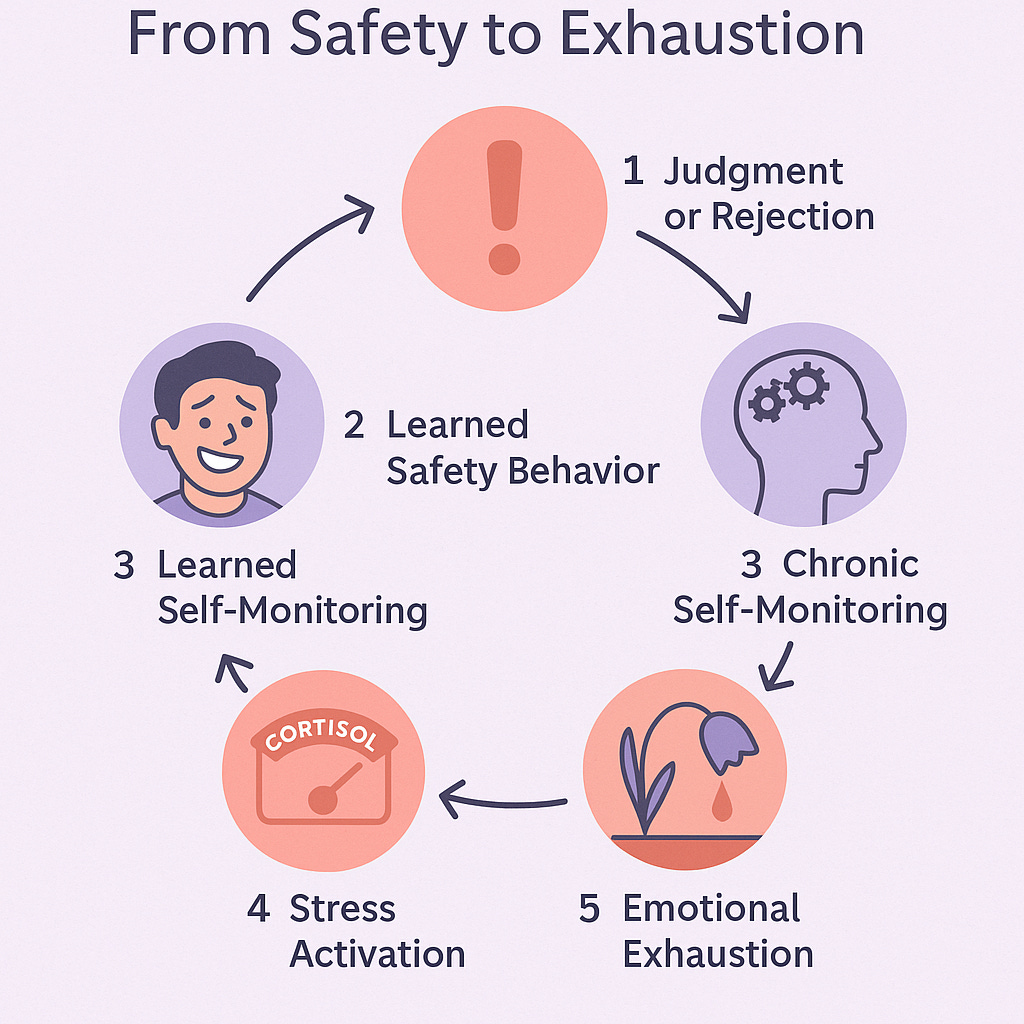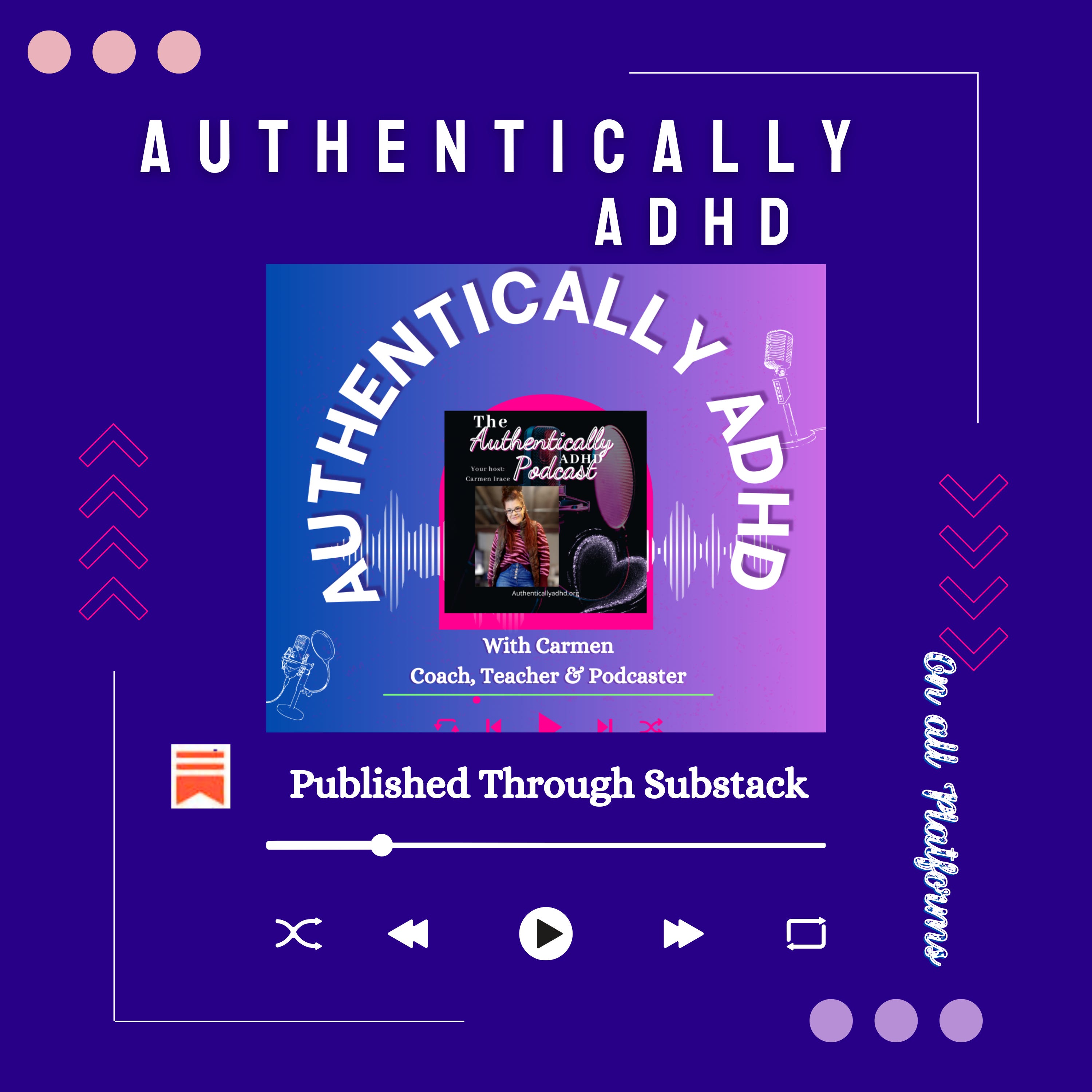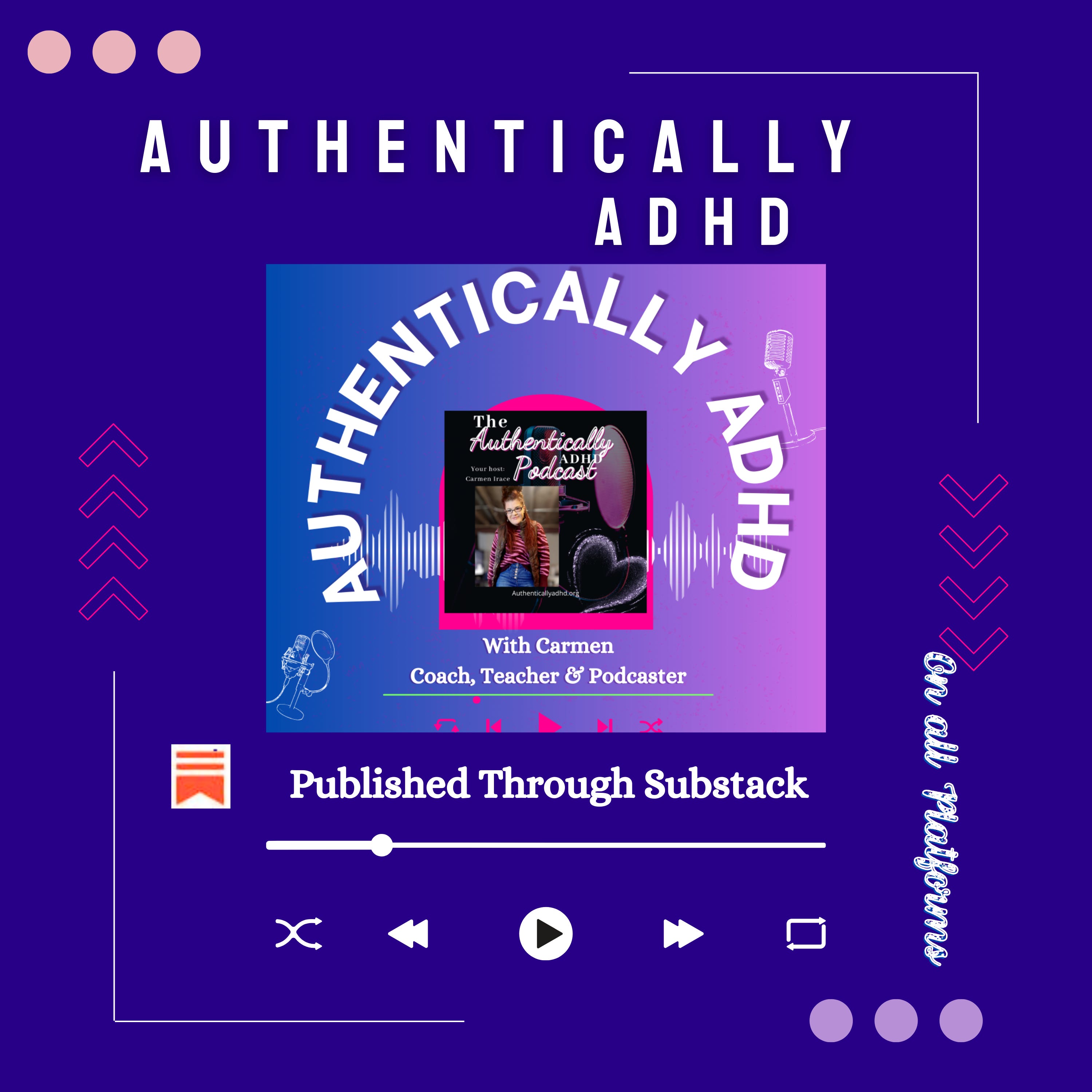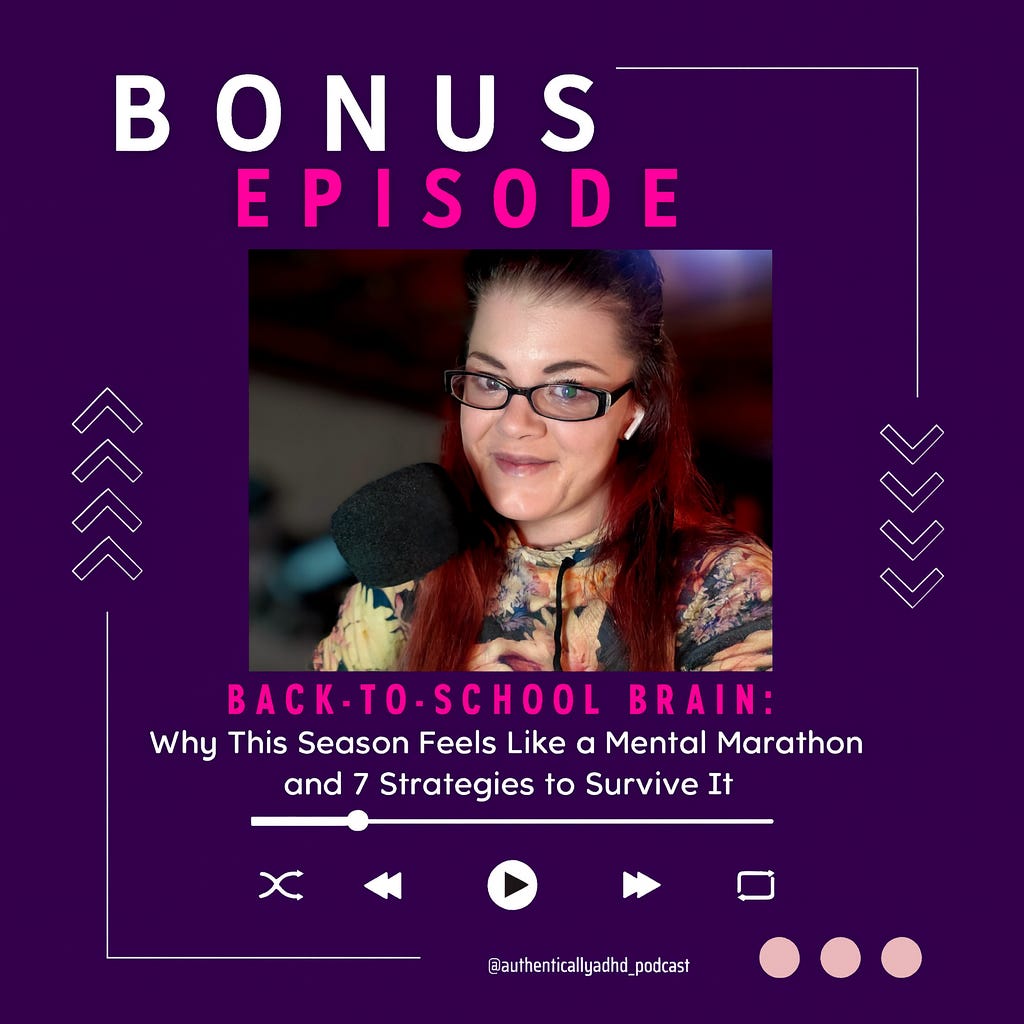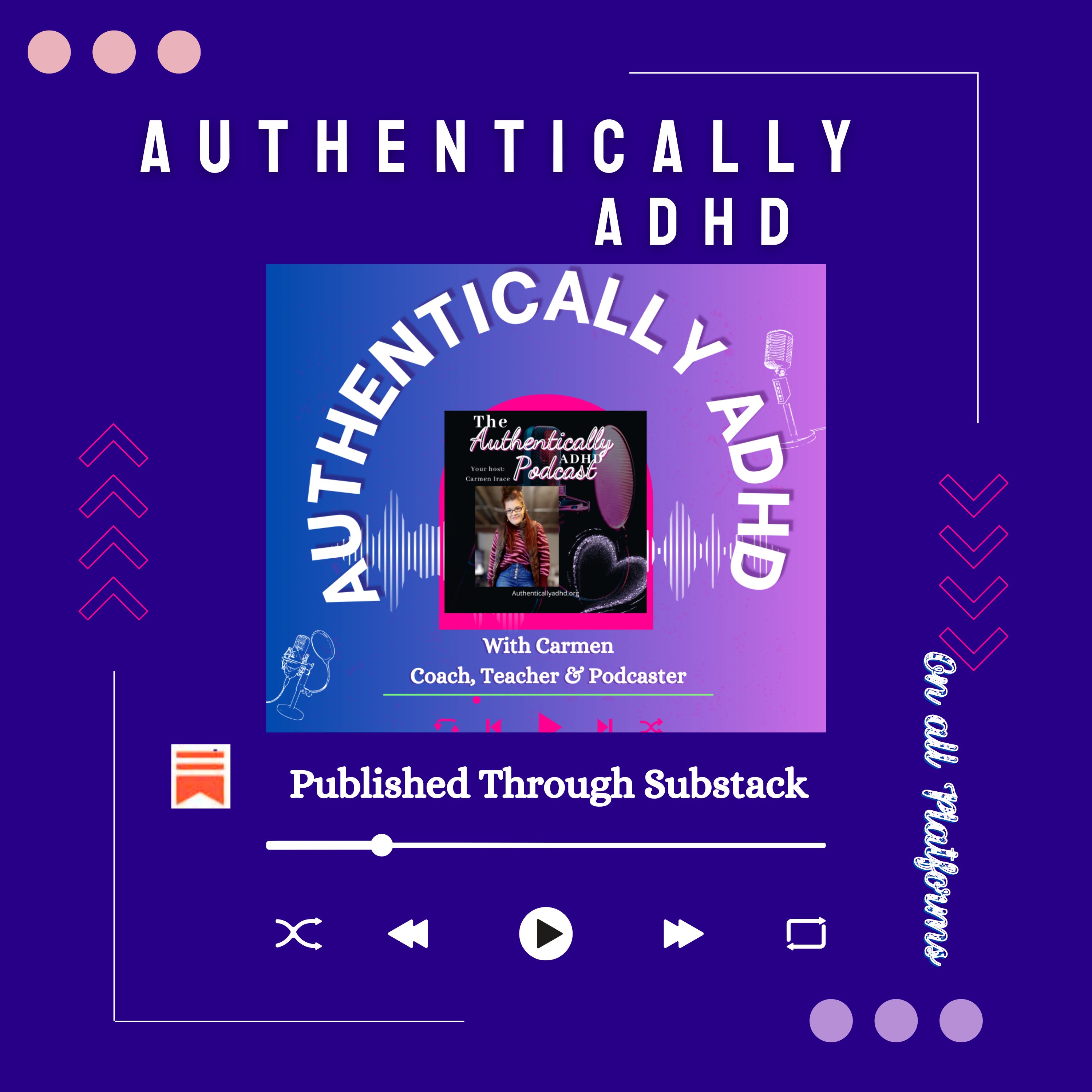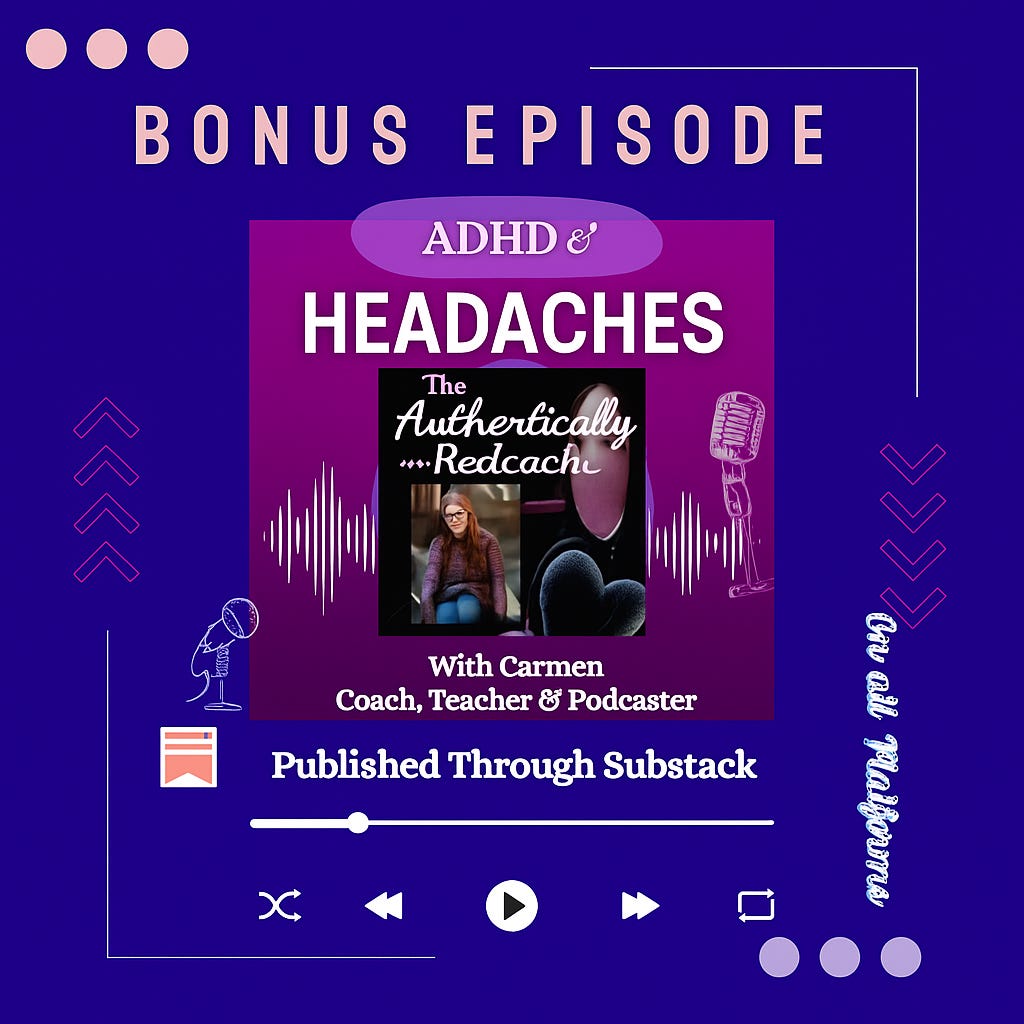ADHD and the Tangled Web of Self-Trust
Description
Hey there, welcome back to Authentically ADHD! I'm so glad you pressed play on this episode today, because its on a topic that when I learned it, i found out it was the work i never knew i was missing and this skill has given me so much more access to my authentic self. Today, we're diving into a big, messy, important topic: self-trust – or as I like to call it, the tangled web of self-trust. Now, if you just chuckled nervously or sighed "ugh, self-trust...", you're in the right place. Stick around for the next 25 minutes, and we'll untangle this web together with a healthy dose of honesty, humor, and hope.
Host (conversational): So, self-trust. Raise your hand if you've ever said something like, "I can't trust myself to do anything right!" (I'm raising mine high, by the way). Maybe you promised yourself you'd start that project well before the deadline, only to find yourself pulling an all-nighter again. Or you swore you'd not forget your friend's birthday this time, and then... whoops, you did – again. If any of this rings a bell, you are so not alone. In fact, one ADHD coach bluntly observed: "This is the truth about ADHD and self-trust: it doesn’t exist. ADHD adults don’t trust themselves at all. Our self-concept begins to erode pretty early in life". Ouch, right? That sounds harsh, but for many of us it feels true. Our confidence in ourselves got pretty banged up over the years.
Host (relatable anecdote): I want to start with a little story here. Picture late-diagnosed me a few years back, before I knew I had ADHD. Every morning I'd pep-talk myself: "Today, I'm gonna get everything on my to-do list done. I got this." And every evening I'd go to bed thinking, "I screwed it up again. What is wrong with me?" I remember once triple-booking my Saturday because Past Me didn't trust Future Me to actually remember my plans – I figured at least one of those events I'd flake on, so better to have backups! 🤦♀️ Yeah... my self-trust was basically non-existent. And the less I trusted myself, the more anxious and overbooked I became. It's a vicious cycle.
Host (upbeat): Well, friends, it's time to break that cycle. Today we'll cover a lot: We'll bust the common myths about self-trust (spoiler: it's not about being perfect). We'll define what real self-trust means – including a quote that changed the way I think about it. We'll explore why so many of us with ADHD struggle with self-trust (we'll dip into a little neuroscience and psychology, including some Internal Family Systems theory and insights from ADHD coach Kristen Carder). And of course, we'll get practical: I'll share 7 strategies – both practical hacks and mindset shifts – to help you rebuild your self-trust as an ADHD adult. Plus, I've got 7 reflection prompts for you, so you can dig into your own self-trust story after the episode. Sound good? Alright, let's jump in!
The Myth of Self-Trust (Especially in ADHD)
Host (slightly humorous): First, let's talk about what a lot of us think self-trust means. I used to imagine that “self-trust” was basically me turning into some magically responsible, never-make-a-mistake unicorn. Like, if I truly trusted myself, I’d do everything right – I'd make the perfect choices, follow through on all my plans flawlessly, and probably have alphabetized spice racks while I was at it. (Because obviously, trusted-self-me has it that together, right?)
Host (empathetic): Turns out, this idea is everywhere. We ADHDers often define self-trust as “I believe I’ll do everything perfectly and stick to every commitment, no matter what.” In the words of ADHD coach Kristen Carder, usually we think “self-trust” means “I believe that all of my choices are going to be perfect, and I believe that I will follow through on everything I say I’m going to do”. Sound familiar? We basically equate trusting ourselves with never messing up. And if you're anything like me (or like most people, really), that bar is waaaay too high. No wonder we feel like we can't trust ourselves – by that definition, nobody on the planet could!
Host (reassuring): So let's bust that myth right now. Self-trust is NOT "I trust myself to always do the right thing and be perfect and follow through 100%." Nope. That common misconception is a recipe for self-loathing, especially for those of us with ADHD who might leave a trail of unfinished projects and oopsies in our wake. If you've been thinking, "I can't trust myself because I keep dropping the ball," you're operating under the wrong definition of self-trust. And it's time to rewrite that definition.
What Is Real Self-Trust? (Redefining It)
Host (inviting): Okay, so if self-trust isn't about perfection, what is it about? I am so glad you asked. This redefinition was a game-changer for me, and I want to share it with you.
(slight pause for effect)
One of my favorite quotes on this comes again from Kristen Carder, who reframed it beautifully. She explains that real self-trust sounds more like this: “Self-trust is not ‘I trust myself to do the right thing and follow through and be perfect.’ Self-trust is, ‘I believe that my experience is real and valid. I know that I will take care of myself in this process. I will figure out how to move forward no matter what.’”. Let that sink in for a second.
Host (encouraging): Did you catch the difference? Instead of trusting yourself to be perfect, it's about trusting yourself to handle it when things aren't perfect. It's saying: I trust that my feelings and needs are valid (even if others have dismissed them before). I trust that I'll be there for me – that I'll have my own back. And I trust that no matter what happens, I can find a way to move forward. Whew! To me, that sounds so much kinder and more realistic. Doesn't it? Honestly, when I first heard that, I was like: Yes, I want that! I want to feel that solid in myself, even when life is messy.
Host (light humor): Think of it this way: trusting yourself isn’t about believing you'll never leave the house with your shirt on backwards (because let’s face it, on some rushed morning, you probably will 😅). It's about knowing that if you do walk out with a wardrobe malfunction, you're not going to beat yourself up all day – you'll laugh it off, maybe ask a friend for a hoodie, and keep going. Real self-trust is believing you can handle it. You can handle you – with all your ADHD quirks and brilliant chaos.
Host (affirming): So, quick recap: Self-trust ≠ perfection. Self-trust = knowing you’ll take care of yourself, come what may. It’s an inner confidence that your experience matters and you’ll figure things out eventually. That’s the foundation we’re trying to build.
How Self-Trust Develops (or Doesn’t) – A Childhood Story
Host (reflective): Now that we know what self-trust really means, a question might be popping up: why don’t we already have it? Where did things go sideways? To answer that, we need to take a quick trip back in time – back to childhood and those awkward teenage years (yes, we're going there). Don't worry, we won't stay too long in the past, but it's important to understand how self-trust is supposed to develop.
Host (explaining): Psychologists say that self-trust is a developmental process. Ideally, it starts when we’re little. Think about it: as kids, we’re naturally looking to our caregivers (parents, teachers, etc.) to figure out if the world is safe and if we are okay. If those caregivers consistently validate our feelings and needs, allow us some autonomy (like letting us try things on our own), and support us in failures without shame, we start to build this internal sense that "hey, my feelings are real, I can rely on myself, I'm capable." According to research, caregivers who validate a child’s emotions and perceptions, help them build autonomy, and encourage resilience (without shaming mistakes) are effectively building that child’s self-trust. It’s like laying down the bricks of a sturdy self-esteem. Each time your experience is honored – "Yes, I hear you're upset" or "I believe you when you say you're trying" – another brick gets laid. Over childhood and adolescence, those bricks (ideally) stack up into a solid platform of I trust myself.
Host (empathetic): But what if those bricks didn’t get laid properly? 🧱 What if, instead of validation and support, you got criticism, invalidation, or excessive control? That’s the reality for a lot of ADHD kids. In fact, research shows that children with ADHD often face more trauma, excessive criticism, and attacks on their self-esteem than their neurotypical peers. (I know “trauma” is a big word, but even "little t" traumas – like constantly being scolded or feeling not good enough – can seriously hurt a kid’s self-image.) If you grew up hearing "Why are you so lazy? Why can’t you just behave?!" or always feeling like the problem child, then your self-trust was likely chipped away instead of built up. Instead of bricks, you got… well, cracks.
Host (sharing): Let me share another personal example. When I was about 10, my mind was always drifting—daydreaming about anything and everything instead of paying attention. One day, my teacher literally had to slam her desk so hard to snap me out of my wandering thoughts that my books rattled across the room. Kids gasped, and I jolted upright, blinking at everyone staring at me. After that, she’d call me out in front of the class: “Earth to Carmen—hello?” As if I was choosing to float off into space. I felt those eyes zero in on me, and I just sank lower in my seat. The unspoken message I absorbed was, “You’re so spaced out, nobody can count on you.” Looking back, I see I was an undiagnosed ADHD kid—my brain genuinely struggled to stay grounded, not me being a daydreaming troublemaker. But no one said, “Hey, I know you’re trying. Let’s find a strategy to help you focus.” Instead, I got embarrassment and shame. And shame

